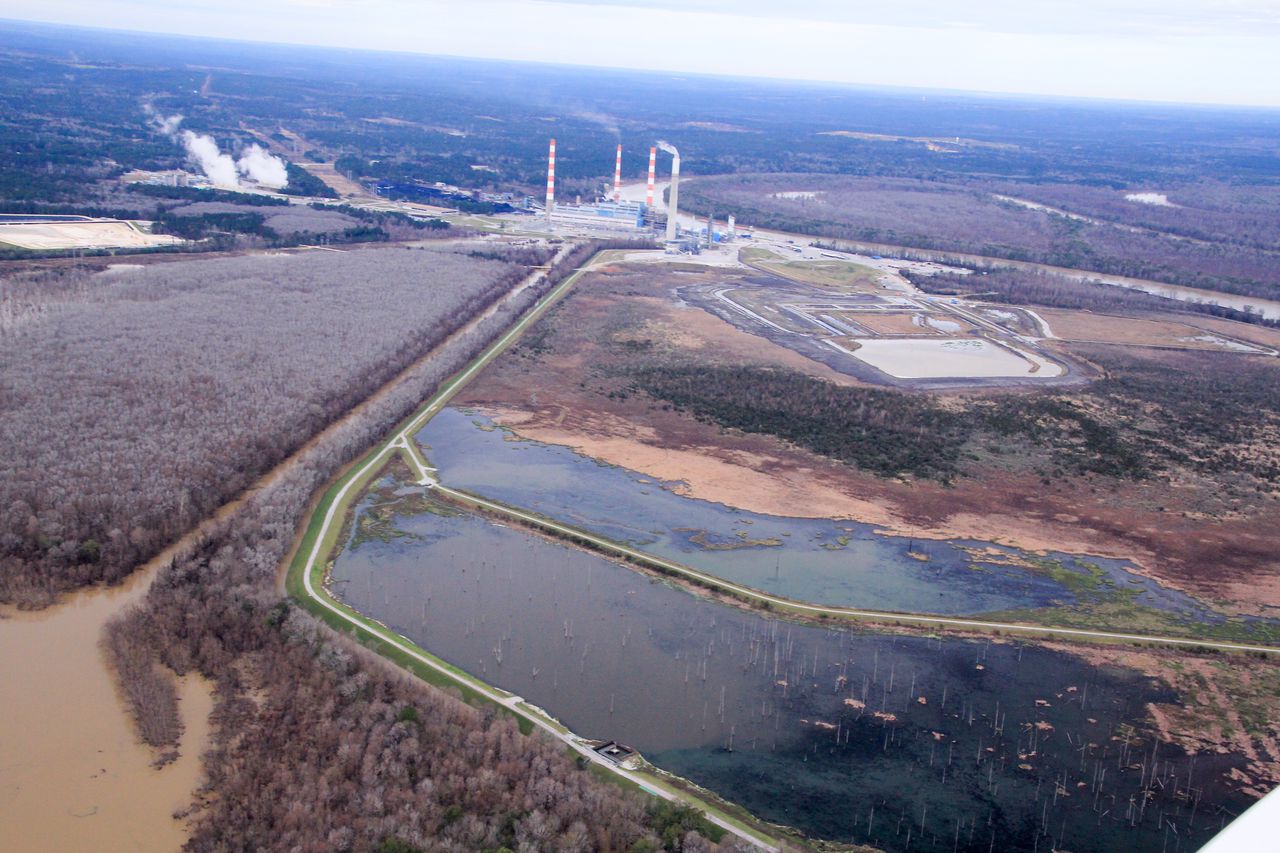Judge says Alabama Power can face suit over storing coal ash by Mobile River
Alabama Power’s plan to leave 21 million tons of coal ash waste in an unlined impoundment on the Mobile River took another hit last week, as a federal judge recommended that a lawsuit against the company be allowed to move forward.
Alabama Power had asked the court to dismiss a lawsuit filed by Mobile Baykeeper last year challenging Alabama Power’s plan to close the 597-acre coal ash pond at the James M. Barry Electric Generating Plant in Mobile County.
The Baykeeper argued that not digging out the leaking ash ponds was a violation of federal environmental laws and would “leach pollutants into public waters of the United States and of Alabama indefinitely.”
Meanwhile Alabama Power made three arguments for why the case should be dismissed:
- The company had received a permit from ADEM to close the ash pond.
- The lawsuit was premature since the pond was not yet closed.
- The Baykeeper had not alleged specific harms.
Federal magistrate judge Sonja Bivins rejected each of those arguments by Alabama Power and recommended that the court deny Alabama Power’s motion to dismiss and allow the Baykeeper’s lawsuit to proceed.
Bivins found that the ADEM permit was not sufficient to meet federal coal ash rules, and that Baykeeper “has alleged concrete, ongoing harm,” and that the environmental group had asserted “plausible claims for relief against Alabama Power.”
“For the reasons set forth above, the undersigned recommends that Alabama Power’s corrected motion to dismiss be denied,” Bivins wrote.
The recommendation and report was made on Sept. 30. Parties have 14 days to file objections to the judge’s report.
Alabama Power told AL.com that as a matter of practice, it does not comment on pending litigation and did not say whether the company planned to object to the judge’s recommendations.
EPA coal ash decision looms
The lawsuit moving forward would be another blow for Alabama Power’s plans to cover coal ash in place at Plant Barry and other locations around Alabama.
Coal ash, or coal combustion residuals (CCR), is the leftover material when power plants burn coal for electricity. The ash contains substances such as mercury, arsenic and heavy metals that can cause human health problems. For decades these ashes were flushed out into holding ponds at power plants across the country, building up massive volumes over the decades.
Environmental advocates argue that leaving ash in these unlined ponds indefinitely will result in decades of water and groundwater pollution, and leave the risk of a catastrophic dam breach like the one that occurred in Kingston, Tenn. in 2008 that sent millions of tons of coal ash flooding out into the river.
Many utilities, including Alabama Power, prefer to retire their ash ponds by covering them in place rather than digging the ash out and moving it to a lined landfill. They say that method can be protective of the environment and is faster and less expensive than moving millions of tons of ash to lined landfills.
Alabama Power got approval from the Alabama Department of Environmental Management in 2021 to use the cover in place method of closing the ash pond at Plant Barry under a state-level permitting program that had not been approved by the U.S. Environmental Protection Agency.
Now the EPA has proposed a rejection of ADEM’s coal ash permitting program, arguing that it does not meet the requirements of the federal coal ash rules.
The EPA has argued that coal ash ponds cannot be closed to meet federal coal ash rules, if that coal ash remains directly in contact with groundwater, as it does at Plant Barry and other power plants in Alabama.
Bivins noted the EPA’s proposed denial of ADEM’s permit program as less protective than the federal standards
“Indeed, the straightforward issue at the heart of this controversy is whether, under the CCR Rule, a CCR impoundment can be capped in place with CCR in contact with groundwater,” Bivins said in the 38-page recommendation.
The EPA is accepting public comments on its rejection of Alabama’s coal ash plans through Oct. 14, and will make a final determination after that comment period.
If the EPA holds its position that leaving coal ash in groundwater is not allowable under the federal rules, utilities like Alabama Power may be forced to excavate massive ponds or find another way to remove the ash from contact with groundwater.
